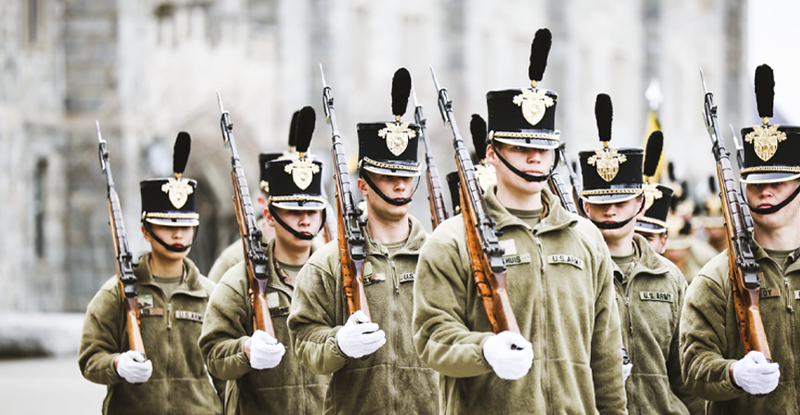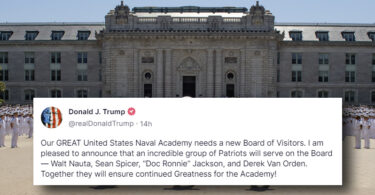By pyrene, USMA grad
The Superintendent of the United States Military Academy at West Point, NY sent a letter out to all graduates to assure them there is nothing to see here, just move along about taking Duty, Honor, Country out of West Point’s mission.
He had a meeting with over 80 key members of the West Point Association of Graduates (WPAOG). In fact, he worked with a number of “stakeholders” for over 18 months to make the changes. Everyone is happy. All is okay. Actually, all is wonderful.
His deflection begs questions. Not hostility, just curiosity.
Why did the mission statement need to be changed? What happened since 2005 that forced change?
What troubled who – and why – about this USMA Mission?
“To educate, train, and inspire the Corps of Cadets so that each graduate is a commissioned leader of character committed to the values of Duty, Honor, Country and prepared for a career of professional excellence to the Nation as an officer in the United States Army.”
In the review process, who recommended these changes for the “Army Senior Leader Approved Mission”;
“To build, educate, train, and inspire the Corps of Cadets to be commissioned leaders of character committed to the Army Values and ready for a lifetime of service to the Army and Nation?”
Seriously, what do these changes actually mean that is different?
1. Let’s unpack the first change. Why was the word “build” added to the verbs – educate, train, and inspire?
The Superintendent supposedly told the WPAOG he sees “Build” as a mission essential task.
How do you “build” the cadets who come to you in the full vigor of their youthful adulthood? They are already built as persons.
Is this build the same as “build and retain diverse and talented winning teams” used in the USMA Strategy chart? What does that mean in the Corps of Cadets?
2. Deleted “each graduate.”
Previous mission statements set a standard for each graduate. Deleting the requirement for each graduate is lowering the bar for USMA. USMA doesn’t demand of itself that each graduate meet the same standards. That may not be the intent. It could be an unintended outcome. Eliminating “so that each graduate is” may just be editing for the sake of cutting words. No one knows until the change is explained.
3. Substituting a “lifetime of service” for “career of professional excellence to the Nation as an officer in the United States Army.”
Why was “professional excellence” dropped? Professional excellence connotes a higher standard than lifetime of service. Was professional excellence dropped because it isn’t being achieved by West Pointers enough to make the expectation of each graduate?
Likewise, is career as an officer in the United States Army dropped because too few West Pointers stay in the Army to make it a career?
Could both changes reflect a new reality that little distinguishes a West Point graduate from the ROTC officer from any other liberal arts college? Is that the case? If that’s not true, then what is the difference?
The retention rates for OCS and ROTC officers at the 10 year mark are higher than West Pointers. Why is that? Is that why the USMA mission statement needed to change?
Clearly, the Superintendent has the authority and power to change the mission of USMA. Executives make changes regularly.
The Supe is entrusted in that distinguished position of leadership to make sure West Point meets the needs of the U.S. Army. But aligning West Point to serve the Army isn’t the same thing as aligning West Point to the Army Values.
The new mission statement inverts the relationship in values between West Point and the Army.
The Army Vice Chief of Staff told my classmate why the U.S. Army Center for the Army Profession and Ethic had to be at West Point. He wasn’t putting it at Ft. Benning, Ft. Leavenworth, Carlisle Barracks, or the Pentagon with their legacies and legitimacy.
“West Point has always been the well spring of ideals and values for the Army.”
Every American citizen is a stakeholder when it comes to the USMA mission. West Point is that important to the Army as the Army is to our Republic.
If the new mission really is just changing happy to glad, it’d still be worthwhile to know the details on why and how the change was made.
If you want restore, reform, and improve West Point, sign up on the MacArthur Society email list.








Leave a Comment